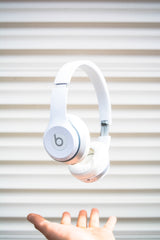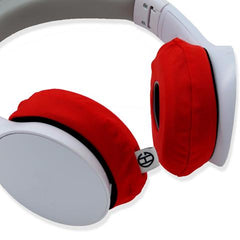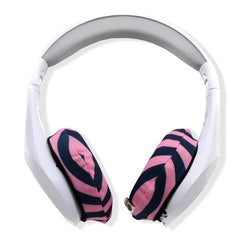Sweating During Exercise: 5 Reasons Why It’s Good for You

The average human body has between two and five million sweat glands and whilst it can seem embarrassing or inconvenient during exercise, it’s actually vital to our wellbeing: sweating during exercise is how we’re able to regulate our temperature.
How Hot?
The optimum temperature of the human body is approximately 98.6ºF (37ºC). During exercise, we start heating up and the brain’s hypothalamus then sends the signal to start sweating. The pores in our skin start producing moisture made up of water, salt, ammonia and sugar: sweat.
Some people assume that it’s this liquid on the skin that helps to cool us down but it’s actually the process of evaporation that lowers our temperature. It’s a good system and it often works very well, but it’s not infallible. We easily run into trouble if during this process we haven’t been drinking enough liquids to replace what we’re losing or if the levels of humidity around us are too high. Humidity makes the process of evaporation more difficult because the air is already filled with moisture. Sweating, therefore, becomes less effective, and the sweat stays on our body and we are unable to cool down.
Sweating during exercise is completely normal but don’t assume that there’s a direct correlation between effort and moisture. The amount that we sweat depends on a number of factors that varies individual to individual: age, gender, level of fitness, body weight and external temperature can all affect how much we secrete. Some people will be completely sodden after a light ten-minute jog whilst others could do a 40 minute HIIT class and stay almost dry.
Jenny Scott, Education Advisor for the National Academy of Sports Medicine told Woman’s Health that sweating is more an indicator of how hot you are rather than how hard you’re working, but there’s clearly a significant psychological benefit to those doing it regularly. This partly explains the popularity of so-called hot workouts like Bikram Yoga and hot HIIT. We assume that the nastier we feel the better our workout was.

How Much Do We Sweat During Exercise?
Sweating is a natural byproduct of exercise but want to know something pretty gross? Humans can sweat as much as 1 to 3 litres per hour. That’s a huge amount of moisture sacrificed just to stay cool. And it’s why it’s important not to be a dick in the gym and to wipe down any equipment you’ve used when you’re done. Nobody wants to sit in your sweat.
Julieann Harris, an American College of Sports Medicine-certified personal trainer told the Washington Post that athletes tend to sweat more and they start sweating sooner. Training means that the body knows what’s coming and is able to adapt. It means that if you exercise regularly, then your body can become more efficient at sweating. Acclimatization is something we’ve seen before when athletes begin working out in the climate conditions they’re going to compete in. If you’ve been training in Colchester, for example, but are racing in Cape Town, then it’s key to get the body used to the change in conditions.
Acclimatization shows how adaptable the human body is and how effectively it can regulate temperature. By adapting in warmer temperatures your body can maintain core temperature, sweat more and reduce water and electrolyte losses.
So Why is it Good to Sweat During Exercise?
Sweating reduces the build-up of calcium and salt in the kidneys and lowers the risk of developing kidney stones.
Kidney stones are hard stones formed from waste crystals that can build up over time and form inside the kidneys. When the body tries to pass one out it can be extremely painful. People have said that passing a kidney stone is more painful than childbirth, so it’s worth doing whatever you can to avoid getting one in the first place. Another benefit is that when we exercise and start sweating we feel thirstier and thereby increase our hydration through water consumption reducing the risk of developing kidney stones further.
Keeps Us From Overheating and Dying
We really don’t give sweat enough credit. It’s an ingenious system to keep us at optimum temperature and is something the body is able to do automatically. If we kept exercising, and if our bodies couldn’t maintain a safe temperature, then we’d start to overheat and that can lead to exercise-induced heat exhaustion which, if left untreated, can lead to heat stroke which can be fatal.

Sweat Has an Antibacterial effect
Scientists in Germany discovered that when we sweat our bodies produce a protein called Dermcidin that can fight germs such as tuberculosis. This natural antibiotic could be key in the fight against drug-resistant strains of bacteria. That’s pretty remarkable and is one reason why maybe we shouldn’t be so keen to jump into the shower immediately after a workout as washing our skin removes this protective antibacterial barrier. Sweating can also help protect against infections caused by scratches, bites and stings, too.
Sweat Helps Your Skin
Our pores contain dirt that can lead to spots and acne and when we start sweating they open up and the moisture flushes out the toxins. Sweating alone won’t keep your skin fresh but it’s an added bonus to exercise.
There’s a slight BUT here, however. Sweat doesn’t cause bacteria but it can help bacteria to spread. This is a big problem for anyone who enjoys listening to music during exercise and why wouldn’t you? Music can help increase your performance during a workout. Moisture trapped between your skin and the cushion of your headphone can lead to a build-up of bacteria that could give you exercise-induced acne. It wasn’t a good look at 13 and it’s probably still not a good look now.
Luckily, EarHugz are antibacterial headphone covers in a range of awesome designs that not only stops sweat from causing spots but also stops it from damaging your headphones, too. This allows you to get the skin-enhancing benefits of sweat without the risk of acne.

Sweat Can Make You Feel Better
There’s a lot of talk about ‘detoxing’ in the fitness world: drinking pond-scum to clean-out your kidneys and destroy poisons in your blood. The truth is that your liver and kidneys already do a bang-up job of detoxifying the body, and there’s probably not much that drinking expensive swamp juice can do that your vital organs can’t. There are foods and vitamins that help support the vital functions performed inside the body but as we only actually sweat out around 1% of toxins, then it seems a bit of a con.
Be careful, too, of advice that suggests you can sweat out a hangover for the same reasons.
That being said, there is the idea that sweating helps to boost endorphins which are the bodies feel-good hormones and why exercising feels so damn good. Dr Ting told Fitness Magazine that "Research has suggested that temperature-sensitive neural circuits to specific regions in the brain exist and may play a significant role in controlling mood." So sweating could have benefits that go beyond just feeling like you’ve had a good workout based on how much you need that shower.
The human body is an amazing machine and sweating is a process that we probably all take for granted. So next time you’re in the gym don’t see sweat as just a byproduct of a workout but as a valuable tool in your general fitness and wellbeing - one none of us could exercise without.



